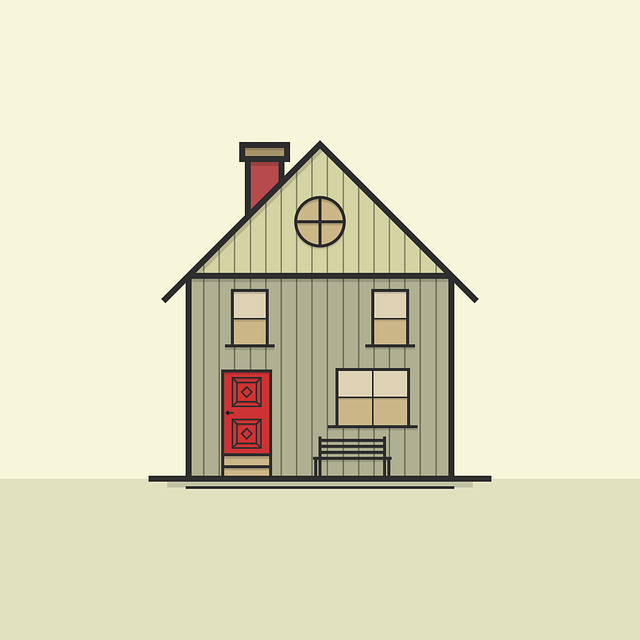Planning a move to Dublin requires understanding the varied cost breakdown, influenced by distance, property size, time of year, and services needed. Labor costs are significant, ranging €50-€150 per hour for movers, while additional services like packaging and insurance add to expenses. Materials costs vary based on property size, including packing boxes, bubble wrap, furniture sliders, van rental, etc. Unforeseen fees like storage or utility connections should be budgeted for. Location impacts costs; suburban moves may differ from central ones due to accessibility and real estate values. Strategizing, comparing quotes, and negotiating can keep moving expenses manageable in Dublin.
Moving house in Dublin can be an exciting, yet costly endeavor. Understanding the price breakdown is crucial for avoiding hidden fees and unexpected expenses. This article guides you through the process, focusing on labor costs—the primary factor influencing your move—and essential materials. We also explore unforeseen expenses, location considerations, and tips to keep costs down. By understanding these aspects, you can plan a smooth transition without financial surprises when moving in Dublin.
- Understanding the Cost Breakdown for Moving in Dublin
- Labor Costs: The Biggest Factor in Your Move
- Materials and Equipment You'll Need (and Their Prices)
- Unforeseen Expenses: Planning for the Unexpected
- Location Considerations: Distance and Accessibility
- Tips to Keep Costs Down When Moving House in Dublin
Understanding the Cost Breakdown for Moving in Dublin

When planning a move to Dublin, understanding the cost breakdown is essential for budgeting effectively and avoiding hidden fees. The cost of moving can vary greatly depending on several factors, such as the distance, size of your property, time of year, and the services you require. In Dublin, it’s common for movers to provide transparent pricing based on a detailed assessment of your move. This typically includes an initial survey, where professionals estimate the scope of work, number of hours needed, and any additional equipment required.
The basic components of moving costs in Dublin usually encompass labor, travel, packing materials, and potential overtime charges if the move is complex or takes place during peak seasons. Some companies may also offer packaging services, disassembly/reassembly of furniture, and insurance, which can add to the overall price. It’s crucial to request a detailed quote from several movers and compare their services and pricing transparently to ensure you’re getting a fair deal for your how much it costs to move house in Dublin.
Labor Costs: The Biggest Factor in Your Move

When planning a move within Dublin, understanding labor costs is key. These expenses are often the single biggest factor influencing the overall price tag of your relocation. Labor fees cover the work of professional movers who handle the packing, loading, and transportation of your belongings. Rates can vary significantly depending on factors like the size of your property, the distance moved, and the complexity of the move (for example, tight spaces or fragile items).
In Dublin, you can expect to pay anywhere from €50-€150 per hour for a team of movers, with some companies offering packages or hourly rates. It’s crucial to get quotes from multiple firms to ensure you’re not encountering any hidden fees. Additionally, be transparent about your move’s specifics—the number of rooms, access points, and special items—to receive an accurate estimate that aligns with how much it truly costs to move house in Dublin.
Materials and Equipment You'll Need (and Their Prices)

When planning a house move in Dublin, understanding the costs involved is crucial. One aspect often overlooked is the expense of materials and equipment needed for a smooth transition. While some items may already be available at home, there are essential tools and supplies that you’ll need to purchase, especially if it’s your first move or you’re moving to a new city.
The cost of these materials can vary widely depending on the size of your property and the complexity of the move. Here’s a rough breakdown: packing boxes (from €10-€20 each), bubble wrap (€5-€10 per roll), markers for labeling (around €2-€5), tape (approximately €3-€7), a dolly or furniture slider (between €15-€30), and a van rental (prices start from approximately €60 per day). Additionally, consider the expense of hiring professional movers, which can range from €100 to several hundred euros, depending on the distance and volume of items moved.
Unforeseen Expenses: Planning for the Unexpected

When planning your move to Dublin, it’s crucial to understand that while you may have a general idea of the costs involved, there can be unforeseen expenses that pop up along the way. Things like additional packing materials, storage fees for extra belongings, or last-minute utility connections can add up quickly and catch you off guard if not accounted for in your budget.
To ensure a smoother transition, it’s wise to set aside a buffer fund for these unexpected costs. This will allow you to handle any surprises that may arise without having to make cutbacks on essential expenses or delay your move. By being proactive and realistic about potential additional fees, you can focus more on enjoying the process of moving into your new Dublin home rather than worrying about financial surprises.
Location Considerations: Distance and Accessibility

When considering how much it costs to move house in Dublin, one crucial factor is location. The distance between your current home and your new residence plays a significant role in determining the overall moving expenses. In Dublin, where the cityscape is characterized by both urban sprawl and inner-city neighborhoods, the cost can vary dramatically depending on the areas involved. For instance, moving from a suburban area to a central location or vice versa will have distinct price implications due to varying real estate values and service availability.
Accessibility also comes into play here. If your new house is in a more remote area, additional charges might be incurred for specialized transport or extra equipment to ensure the move is safe and efficient. Conversely, navigating through bustling city streets demands careful planning and often results in higher labor costs due to the potential challenges of narrow roads, parking limitations, and traffic congestion. Understanding these location considerations upfront can help you factor in the associated expenses when budgeting for your house move in Dublin.
Tips to Keep Costs Down When Moving House in Dublin

Moving house can be an expensive endeavor, but there are strategies to keep costs down when relocating in Dublin. One effective approach is to plan and budget meticulously. Start by creating a comprehensive moving checklist that includes all tasks and potential expenses. This way, you can identify areas where costs could escalate and make informed decisions to stay within your budget.
Consider negotiating with removal companies for better rates, especially if you have a larger property or a specific move date. Additionally, opt for cost-effective packing methods; use inexpensive materials like recycled boxes and newspaper to wrap fragile items. DIYing some aspects of the move, such as loading furniture onto trucks, can also significantly reduce labor costs. Remember to compare quotes from multiple service providers to ensure you’re getting a fair price for your Dublin relocation.
When planning your move to Dublin, understanding the cost breakdown is crucial. Labor costs often represent the single biggest expense, but by being proactive and considering factors like location, materials, and unforeseen events, you can effectively manage your budget. With careful planning and these insights, you’ll have a smoother transition without hidden fees, ensuring your move aligns with your financial expectations. To minimize costs, explore affordable options for materials, stay flexible on location, and prepare for potential surprises. Remember, knowing the true cost of moving in Dublin is the first step towards a stress-free relocation.
